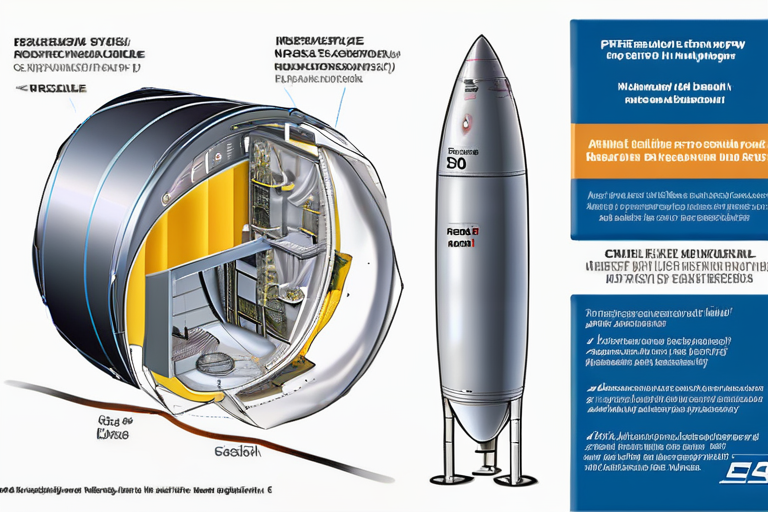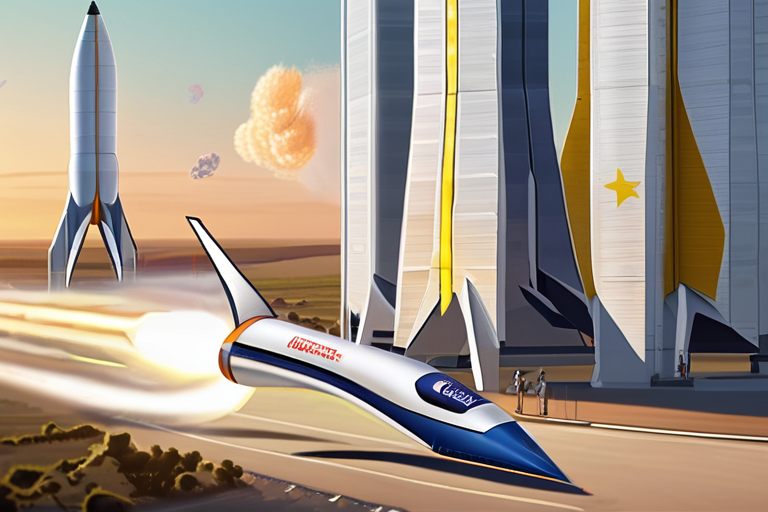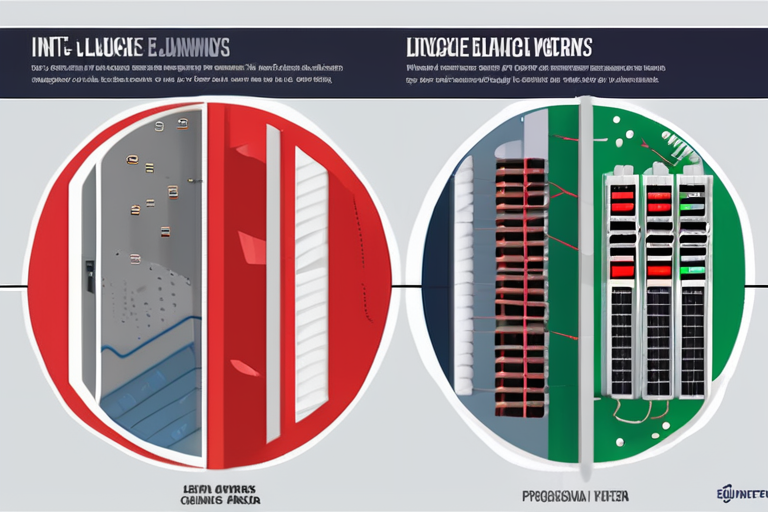European Space Agency Awards Contract to Avio for Reusable Upper Stage Design
The European Space Agency (ESA) has signed a contract with Italian company Avio to design a reusable upper stage capable of flying into orbit, returning to Earth, and launching again. The contract is valued at nearly $50 million.
According to the agreement, Avio will begin designing the upper stage, which is expected to be a significant technological advancement for the European space industry. This feat has proven challenging even for companies like SpaceX, which has successfully developed reusable boosters but is still working on perfecting its Starship program.
"Avio's experience with the Vega rocket and our expertise in propulsion systems make us an ideal partner for this project," said Giorgio Gasperoni, Avio's CEO. "We are proud to be part of this effort to push the boundaries of space technology."
The ESA has been seeking to develop a reusable upper stage as part of its efforts to reduce costs and increase efficiency in space missions. The agency believes that such a system could significantly enhance its launch capabilities.
"This contract is an important step towards developing a more sustainable and cost-effective approach to space exploration," said Jan Woerner, ESA's Director-General. "We are confident that Avio will deliver a high-quality design that meets our requirements."
The development of reusable upper stages has been a topic of interest for several years, with companies like SpaceX and Blue Origin investing heavily in the technology. However, the European industry has yet to achieve this feat.
Avio's contract is part of a larger effort by the ESA to develop new technologies and capabilities that can be used in future space missions. The agency has been working closely with industry partners to advance its research and development efforts.
The design of the reusable upper stage is expected to take several years, with Avio working closely with the ESA to ensure that the system meets all necessary requirements. Once completed, the system will undergo testing and validation before being integrated into future space missions.
In related news, SpaceX has been making progress on its Starship program, which aims to develop a fully reusable rocket capable of carrying both crew and cargo to orbit. While the company has faced challenges in perfecting the technology, it remains a leader in the field of reusable rockets.
The ESA's contract with Avio marks an important milestone in the development of reusable upper stages, and it is expected to have significant implications for the European space industry. As the agency continues to invest in new technologies and capabilities, it will be interesting to see how this project progresses and what impact it has on the industry as a whole.
Background:
The ESA's contract with Avio is part of its efforts to develop new technologies and capabilities that can be used in future space missions. The agency has been working closely with industry partners to advance its research and development efforts, with a focus on reducing costs and increasing efficiency in space exploration.
Market Analysis:
The market for reusable upper stages is expected to grow significantly over the next few years, driven by demand from governments and private companies alike. Companies like SpaceX and Blue Origin are already investing heavily in this technology, and it is likely that others will follow suit.
Economic Impact:
The development of reusable upper stages has significant economic implications, as it can reduce costs and increase efficiency in space missions. This could lead to a decrease in the cost of launching satellites and other payloads into orbit, making space exploration more accessible to governments and private companies alike.
Practical Business Insights:
Avio's contract with the ESA is an important step towards developing a reusable upper stage, but it also highlights the challenges that companies face when trying to perfect this technology. The development process will likely take several years, and it will require significant investment from both the ESA and Avio.
Current Status and Next Developments:
The design of the reusable upper stage is expected to take several years, with Avio working closely with the ESA to ensure that the system meets all necessary requirements. Once completed, the system will undergo testing and validation before being integrated into future space missions.
*Reporting by Arstechnica.*



 Hoppi
Hoppi

 Hoppi
Hoppi

 Hoppi
Hoppi

 Hoppi
Hoppi

 Hoppi
Hoppi

 Hoppi
Hoppi











